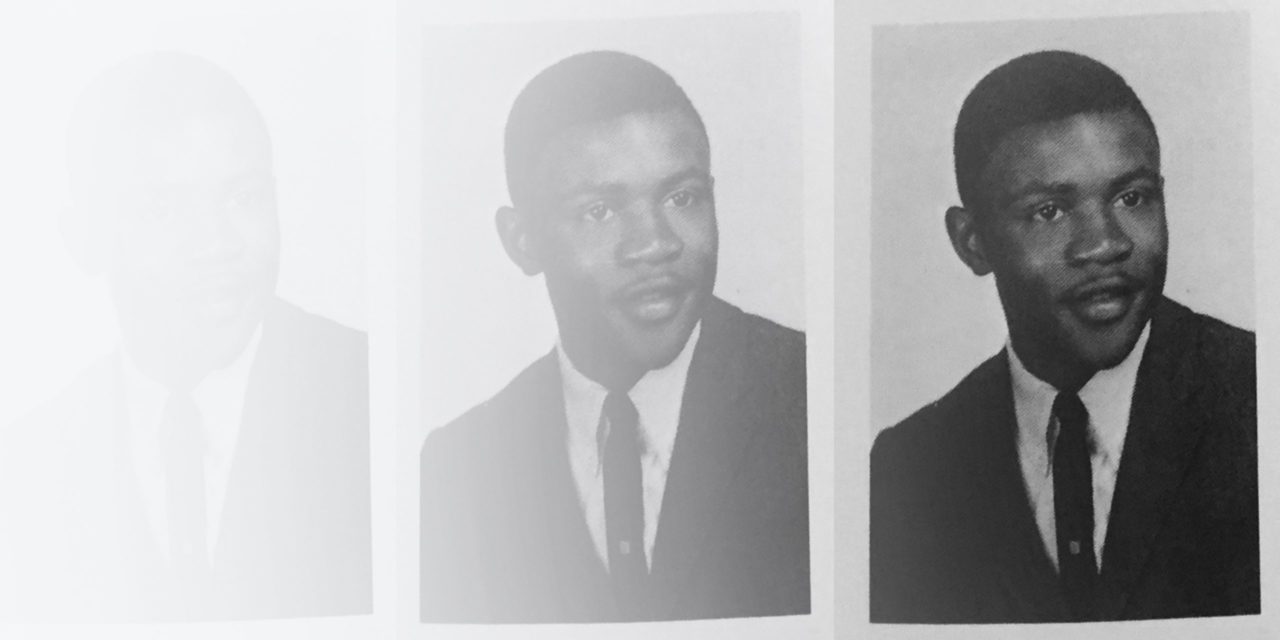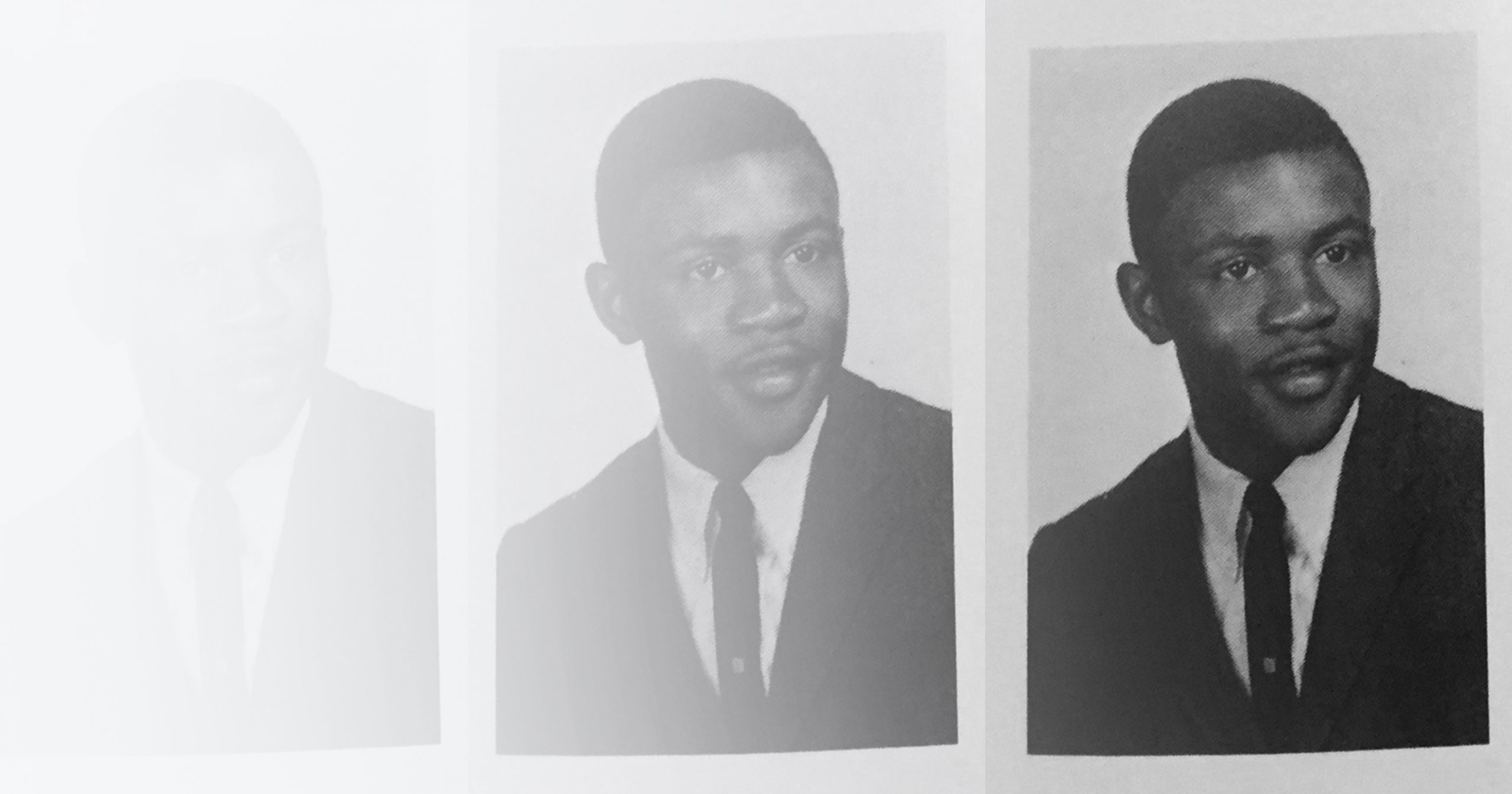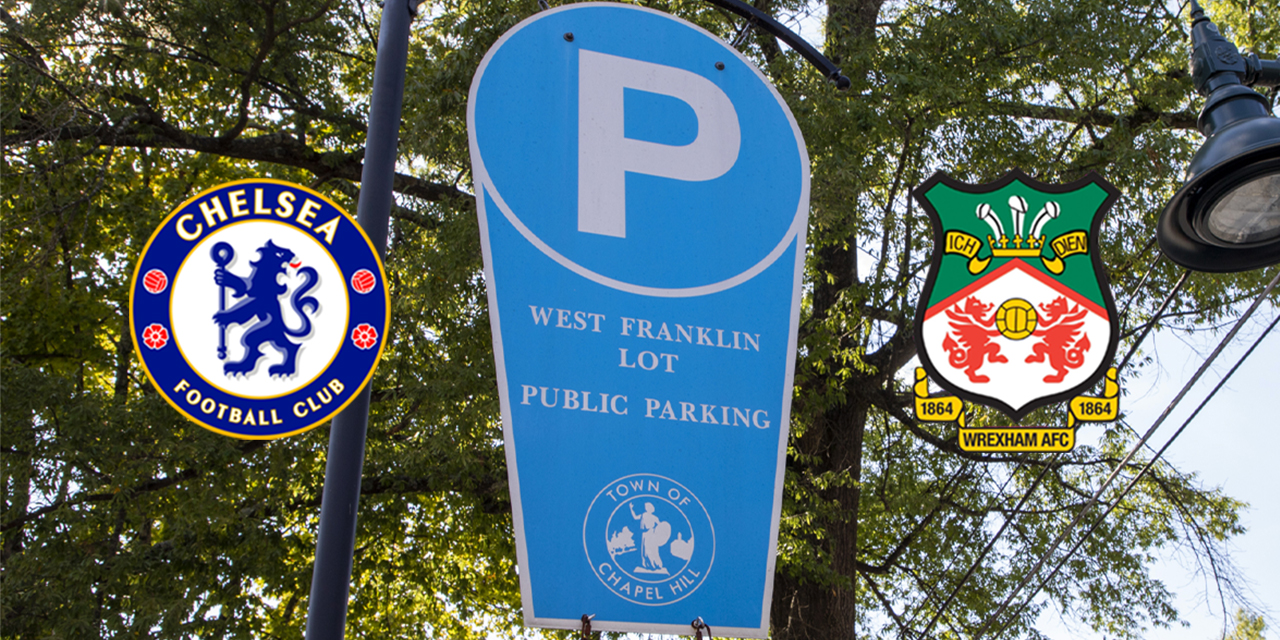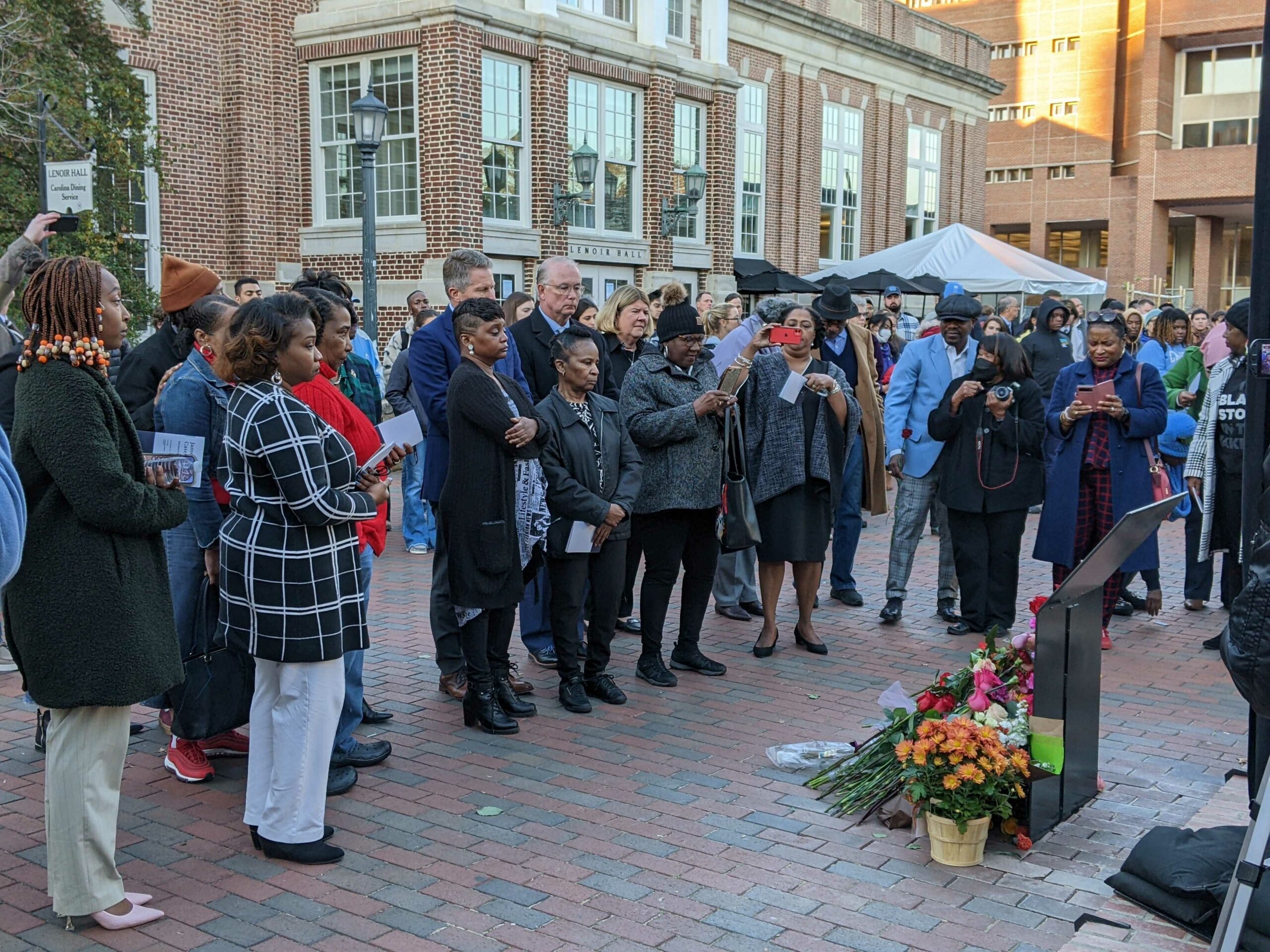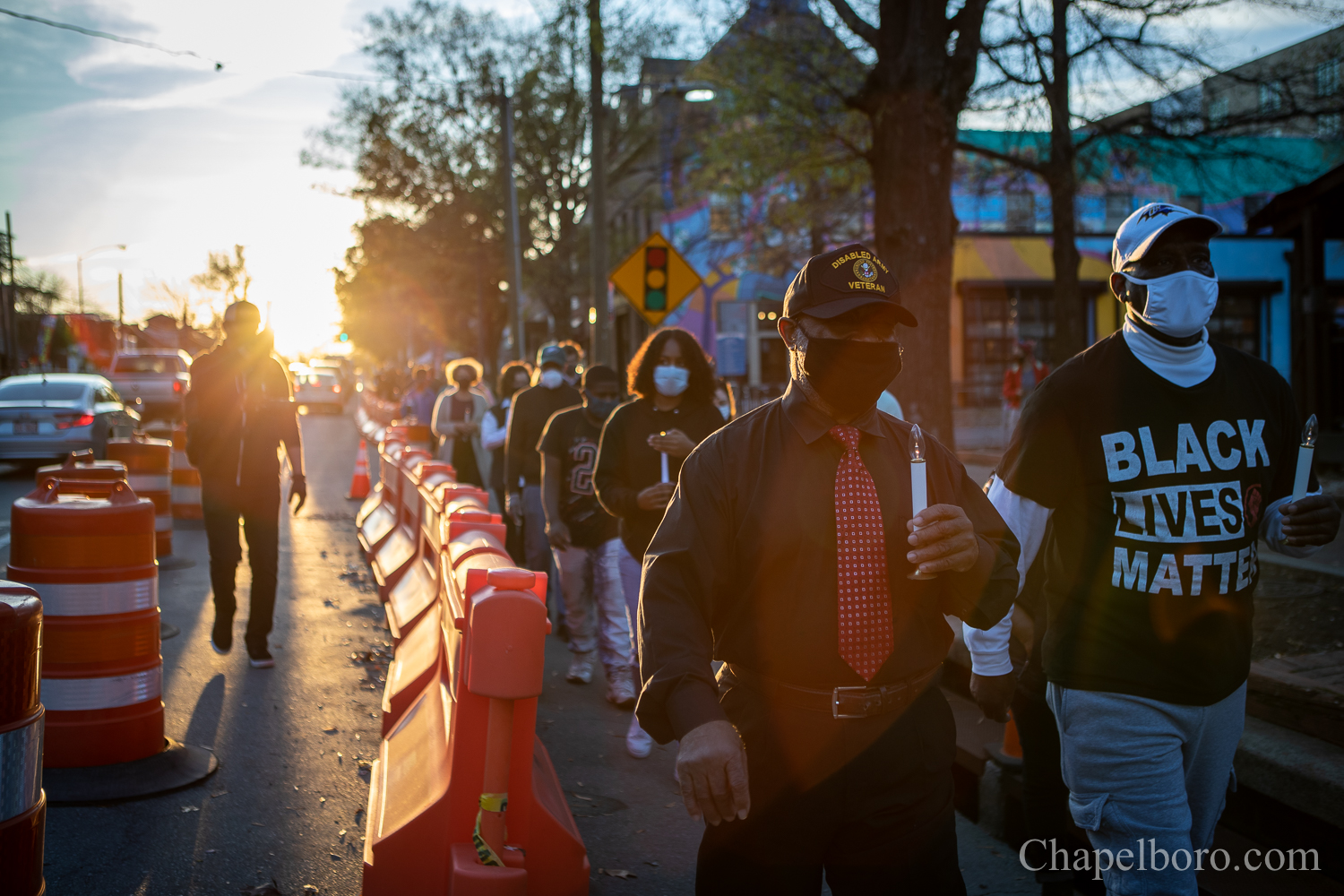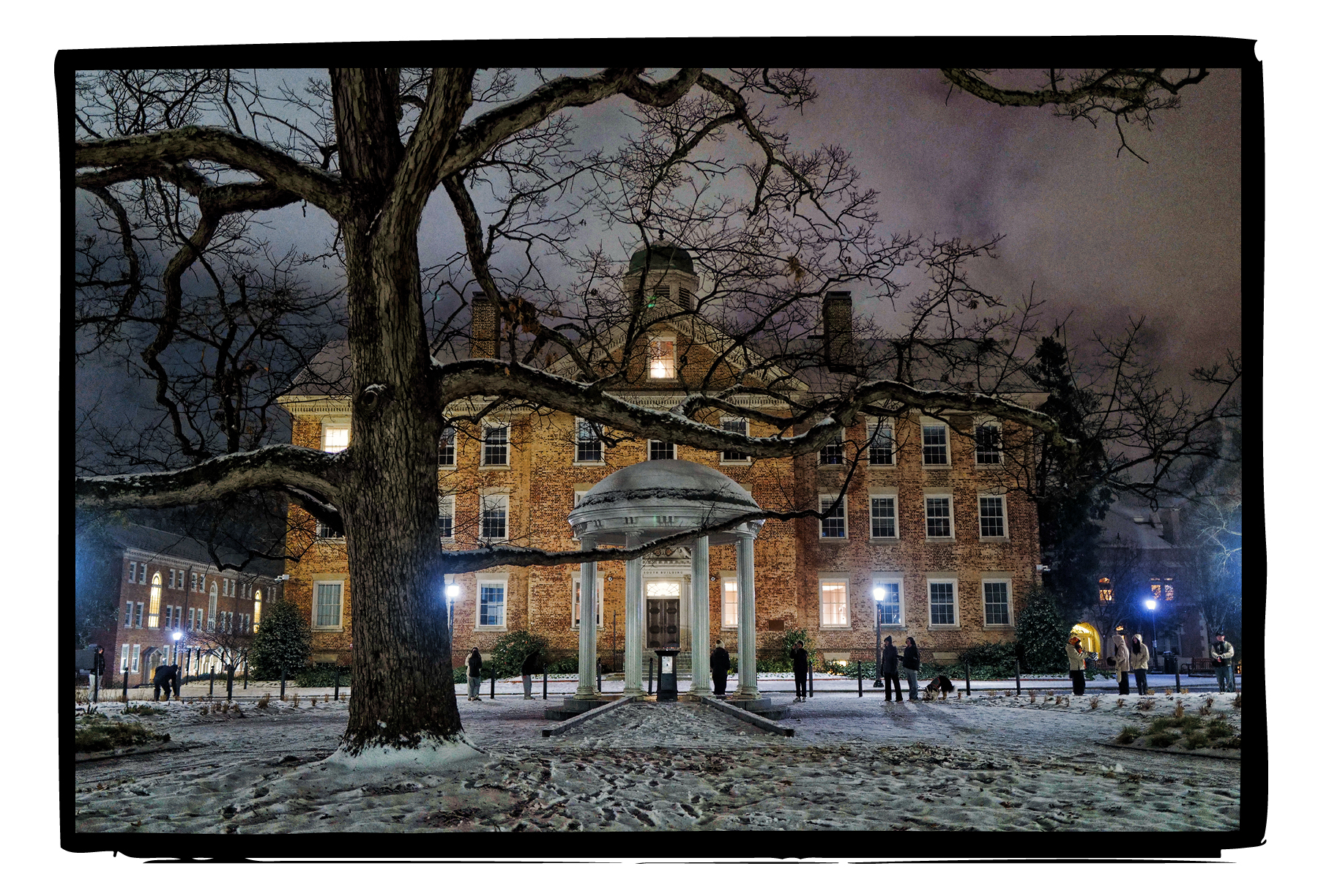Sunday marked 51 years since the tragic murder of James Cates, a Black man who was stabbed at just 22 years old in the middle of UNC’s campus.
Last week, community organizers and members of the Cates family reflected on his life and the lessons learned from the institutional failures that led to his death.
On the cold and rainy night of November 21, 1970, James Lewis Cates Jr. was invited to an all-night dance in the Carolina Student Union with the aim of improving race relations. The student population at the time was just two percent Black.
That night, a Nazi-supporting motorcycle gang known as the Storm Troopers appeared on campus and got into a fight with the Black youth at the dance.
During the fight, Cates was stabbed twice and left to bleed out in the middle of the Pit.
51 years later, family members say they still haven’t reconciled with the painful memory.
At a webinar hosted by the Chapel Hill Public Library last Thursday, first cousin of James Cates, Senator Valerie Foushee said the events of that night still haunt her.
“He was an important member of our community in Chapel Hill and a beloved family member. After 51 years, our family still feels the sting of his untimely death and the trauma that led to the way his life was devalued before and after his murder.”
Foushee said many institutions are complicit in his cousin’s murder including the Town of Chapel Hill, local police forces and the university.
Historical documents show the Chapel Hill Police Department did not arrest anyone after James was stabbed and some suggest they even encouraged the Storm Troopers to flee the scene.
Much of that research comes from journalist and community activist Mike Ogle, who has researched the Cates murder for more than three years. Ogle said the evidence suggests Cates’ death was preventable had police and medical support arrived in a timely fashion.
Ogle read a letter to the editor from a white UNC student that was published in the Daily Tar Heel and Chapel Hill Weekly shortly after the murder.
“I find it hard to believe a flock of policemen stood by to let this victim lie bleeding as much as 30 or 40 minutes before finally shoving him into the back seat of a police car,” the letter said. “I find myself wondering had the victim been a white college student would he have waited so long to be treated.”
Beyond the horrific death of Cates, Ogle said the equally disheartening part of the history is the institutional failure on so many levels, something he believes we are still grappling with today.
“For many in the local Black community, James Cates was a clarifying moment after the hard fought Civil Rights victories of the 1960s,” Ogle said. “It loudly showed that not so much had changed after all, even in Chapel Hill. For some James Cates was like their Emmett Till, yet outside of his community most everybody forgot. James Cates was almost immediately erased from local history.”
Last year, community organizers, students and members of the Cates family established the James Cates Remembrance Coalition. The goal of the coalition was to honor his legacy, create a critical oral histories project and advocate for the renaming of the UNC Student Stores after James Lewis Cates Jr, something which is still pending approval from the UNC Board of Trustees.
The coalition has worked to educate people of all generations about the story of James Cates.
Julia Clark, a member of the coalition and UNC student said this history is important to remember because she believes it is often intentionally pushed out of our consciousness, especially by the university.
“I think a lot of times we desensitize ourselves so much to Black trauma that we choose not to learn who people are,” Clark said. “Instead, we consume stories of Black pain without knowing the faces behind that pain.”
One of the people that does know the face behind the pain is close friend and classmate of James Cates, Burnice Hackney. He said, while his friend should still be alive today, he believes justice will come.
“We expected justice. We always expect justice,” Hackney said. “Our experiences as people of color, however, have taught us that American jurisprudence does not always equate to justice. One of the bedrock principles of our legal system is justice delayed is justice denied. So it was in James Cates’ case and the proverbial clock is still ticking.”
It is through the work of community members, close friends like Hackney and the coalition that the legacy of James Cates lives on in the long march towards social justice in Chapel Hill.
Featured Photo via the UNC Center for the Study of the American South
Chapelboro.com does not charge subscription fees. You can support local journalism and our mission to serve the community. Contribute today – every single dollar matters.

